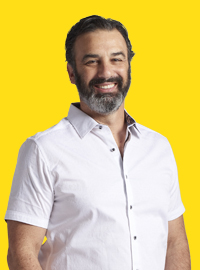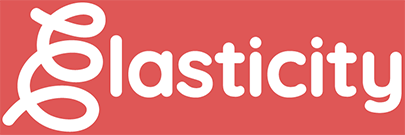Dr. Martin Luther King Jr. gave many speeches, the most celebrated being his 1963 “I Have a Dream,” given during the March on Washington. I’m not going to quote the speech nor analyze its context today. Rather, I hope I can bring light to the change we as marketers, we as brands, and we as human beings must become. I’d like to reflect on Dr. King’s legacy and help demonstrate why we should be connecting and building genuine understanding and authentic relationships with communities across the nation and globe.
Let’s start with a brief history lesson: In 1986, Congress passed a bill making the third Monday of every January a federal holiday honoring Dr. King. That was 18 years after King’s assassination, and yet, Congressman John Conyers of Michigan introduced the first bill to Congress merely four days after Dr. King was killed. After years of perseverance, the bill was finally passed. However, not all states honored this day, and other states chose to honor it with birthday celebrations of Confederate military figures.
It took until 2000 for all states in the Union to finally observe this holiday.
Fast forward 58 years after the March on Washington. Many communities in our country continue to fight for equality and justice, nearly two generations after Dr. King said these rights were for all, not just some. In 2021, The legacy of Dr. King still rings true today, yet the question remains: What are we doing to make change?

As marketers, brand managers, strategists, advertisers and more, we have the privilege of obtaining the attention of captive audiences to teach them, to tell them and to show them. This is a responsibility that should not be taken lightly.
Our audiences are changing. They are learning more about themselves and breaking away from the traditional societal norms created decades ago. And they are looking for brands who will step up to the plate to not only stand up for injustice but risk it all.
In Dr. King’s book Strength to Love, he wrote, “The ultimate measure of a man is not where he stands in moments of comfort and convenience, but where he stands at times of challenge and controversy. The true neighbor will risk his position, his prestige, and even his life for the welfare of others.”
More than ever, this message could not be more true today. Consider this from Harvard Business Review:
- 60% of the U.S. population says that how a brand responds to racial justice protests will influence whether they buy or boycott the brand in the future;
- 60% say brands should take steps to address the root causes of racial inequity;
- 57% say brands must educate the public.
I’m not much of a betting man, but I’d put my money on these numbers to continue to increase over time. Yet the question still remains: How do we as brands and marketers do better — if not for ourselves, for the consumers we serve? While I cannot give you all the answers, I will leave you with a few starter ideas:
- Educate Yourself – In the age of technology there are thousands upon thousands of resources focused on equity, diversity and inclusion. Search for it. Ask about it. Do the work. And not just on an individual level. Education and tools must be offered and shared with everyone within your organization or business as it is just as important your employees understand and stand by your values.
- Become Anti-Racist – Anti-racism is a form of action against racial hatred, bias, systemic racism, and the oppression of marginalized groups. It is structured around conscious efforts and deliberate actions to provide equitable opportunities for all people on an individual and systemic level. We must not just be against racism, but dedicate ourselves to intentional actions that help make change. This step will take more work (and probably time) than others, but if you do nothing else, do this.
- Build Genuine Connections – We all have our own lived experiences. To authentically market to any consumer demographic, it’s important to ensure there is representation from the community you wish to reach in the development and decision-making process. This goes even further regarding building actual connections with your consumers. Ask them about themselves in unique ways to learn who they are and how they use your brand.
- Create Equitable Spaces – It’s important that meetings, projects and job openings offer not just equal but equitable seats at the decision-making table. This is the only way your brand will learn and grow.
- Don’t Be Afraid to Fail – We’re all human and we won’t get life right 100% of the time. So when your brand does something wrong (and it will), own it. Your consumers will appreciate your brand more. Just look at Rihanna’s quick reaction (and apology) to the Muslim community after her Savage Fenty show. She messed up and owned it.
This should get you started, but please don’t ever stop. Change is an ongoing thing that requires intentional effort.
I leave you today with this quote from Dr. King’s Letter from a Birmingham Jail, “Injustice anywhere is a threat to justice everywhere. We are caught in an inescapable network of mutuality, tied in a single garment of destiny. Whatever affects one directly, affects all indirectly.”



